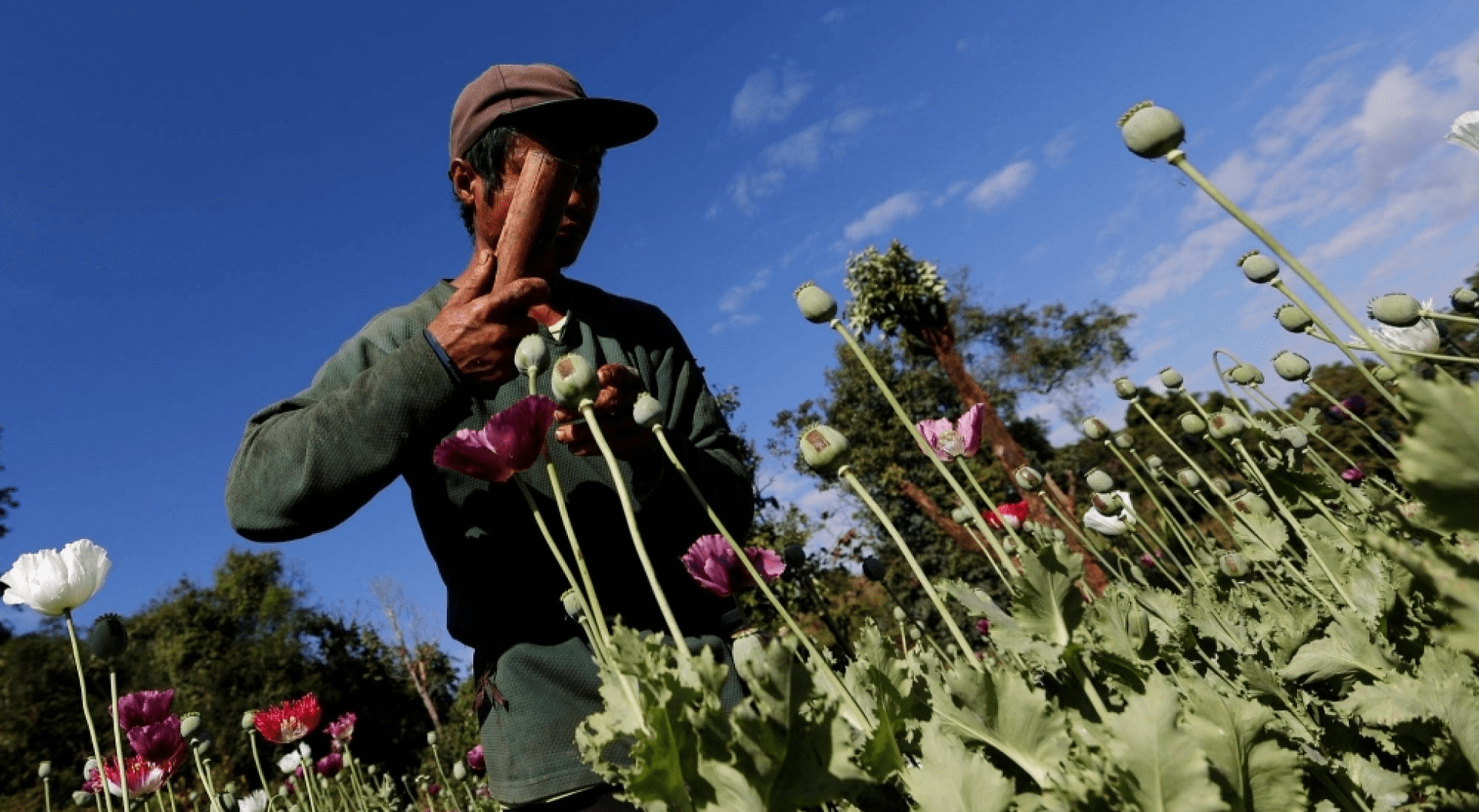Myanmar is set to become the world’s largest opium producer in 2023, overtaking Afghanistan after the Taliban government cracked down on the trade, according to a United Nations report released on Tuesday.
According to the latest report from the United Nations Office on Drugs and Crime (UNODC), this year Myanmar produced an estimated 1,190 tons of opium – necessary for the production of heroin.
The figures come after Afghanistan’s opium production fell by an estimated 95 percent to around 364 tonnes following the Taliban government’s ban on poppy cultivation in April last year, according to the UNODC.
What’s fueling Myanmar’s opium poppy boom?
The Golden Triangle border region between Myanmar, Laos, and Thailand has long been a hotbed for the production and trafficking of illegal drugs, especially methamphetamine and opium.
The total estimated value of Myanmar’s “opiate economy” has risen to between $1 billion and $2.4 billion – the equivalent of 1.7 to 4.1 percent of the country’s GDP in 2022, the UNODC said.
Last year, about 871 tons of opium were produced in Myanmar.
Poor access to markets and government infrastructure, as well as rampant inflation, seem to play a key role in farmers’ decision to increase poppy cultivation by the end of 2022, the report said.
Estimated opium production for 2022-23 was at its highest level in more than 20 years, the UNODC said.
She also said poppy cultivation in Myanmar is becoming more sophisticated, with increased investment and better practices – including better irrigation and the possible use of fertilizers – pushing up crop yields.
AFP was unable to reach a spokesman for the Myanmar junta for comment.
A senior police officer working in the country’s anti-narcotics unit said the conflict was hampering efforts by law enforcement agencies to find and destroy the poppy fields.
Myanmar’s main farming area is Shan State, whose northern part has been wracked by fighting in recent weeks after an alliance of armed ethnic minority groups launched an offensive against the junta and its allies.
The Shan accounted for about 88 percent of the country’s 102,054 acres of opium poppy acreage, the U.N. report said. Shan State occupies nearly a quarter of Myanmar’s landmass and is dotted with jungle-covered gorges and hills.
A dizzying array of ethnic armed organizations, which can call upon tens of thousands of well-armed fighters, control the territory of the country, which is also the primary source of methamphetamine in Southeast Asia, according to the United Nations.
Some administer autonomous enclaves granted to them by previous juntas that analysts say are home to casinos, brothels and arms factories.
The UN said cultivation has also increased in northern Kachin state and Chin state on the border with India.
Analysts say the military, which overthrew an elected government and seized power in 2021, is not serious about ending the multibillion-dollar trade.
In a rare admission earlier this year, the head of Myanmar’s Central Drug Abuse Control Board said his efforts to crack down on the trade were having no impact.
Taliban claim opium cultivation has been ‘eradicated’
Afghanistan, which has been the world’s largest producer for several years, saw its cultivation collapse after Taliban authorities pledged to end illegal drug production. In its 2022 report, the UNODC reported that poppy cultivation in Afghanistan continued to grow during the first year of the Taliban’s return to power. However, this trend reversed dramatically during 2023, according to UNODC data.
Poppy cultivation accounted for almost a third of the country’s total agricultural production by value in 2022, but the area used for poppy decreased from 575,756 acres at the end of 2022 to 26,687 in 2023.
Myanmar’s legal economy has been wracked by conflict and instability since the military took power in 2021, forcing many farmers to grow poppies.




